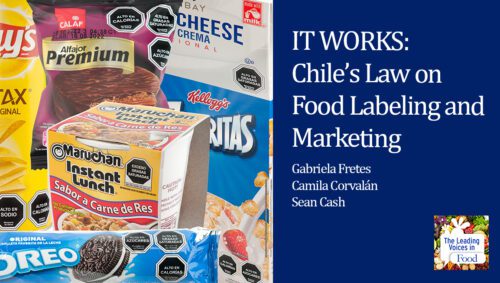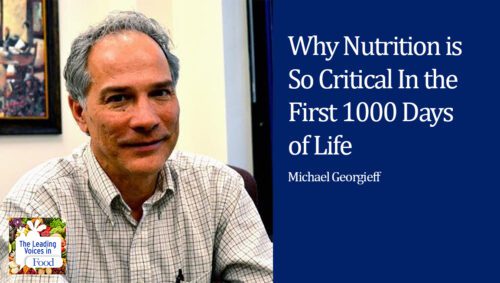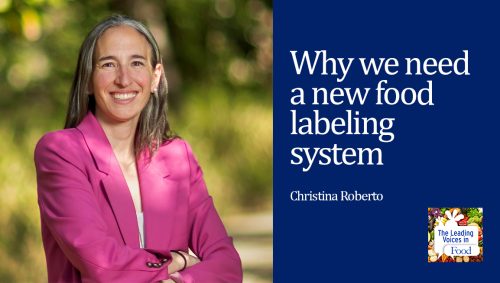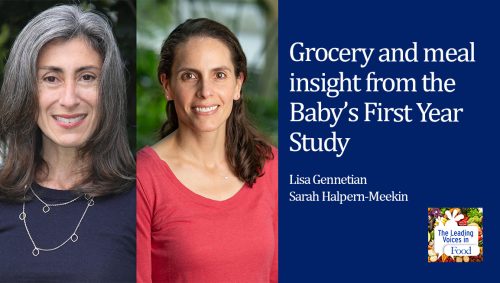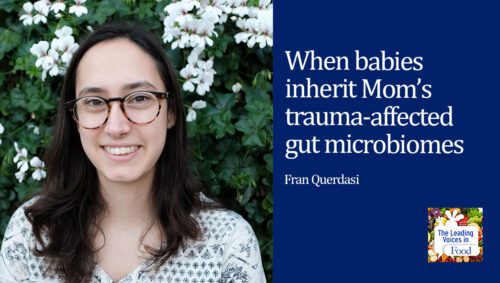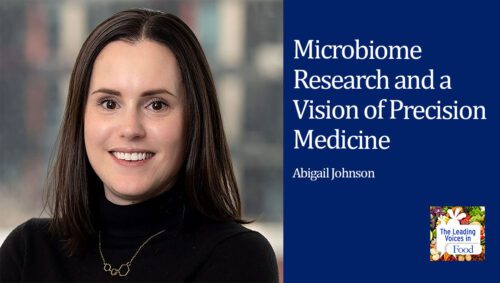E29: Linda Bartoshuk on Supertasters, Yuck, and the Future of Food Nutrition
Ever heard the term supertasters? Have you wondered why some people love broccoli and others find it very unpleasant. Is family upbringing the answer to this? Or, is there a biological basis for this and for other taste preferences? The leading voice on these issues is Dr. Linda Bartoshuk.
Subscribe: Apple Podcasts | TuneIN | Google Podcasts | SoundCloud | PocketCasts | Radio Public
Tags: Children Food Preferences | Diet & Nutrition | Food, Psychology & Neuroscience |

Linda Bartoshuk is the Bushnell Professor of Food Science and Human Nutrition at the University of Florida Institute of Food and Agricultural Sciences. Linda’s research focuses on why taste can be so variable, the fascinating biology in play and what the implications might be for human health and wellbeing.
Interview Summary
So some years ago you and I (Kelly Brownell) were colleagues at Yale University, and we met up to discuss our mutual interest in food preferences and human eating patterns. I remember the meeting like it just happened yesterday because you pulled out a little strip of paper, you explained that there was some harmless chemical on it and you asked me to put it on my tongue. Then you asked me then what I experienced. So after I said “Yuck!” you proceeded with uncanny accuracy to tell me what foods I like and don’t like. And we didn’t know each other that well! It was amazing because there were things that you said I liked, like ice cream and sweet things. Well, that’s easy because most people like those things. But then you went and told me a bunch of stuff I don’t like, and I was amazed by how accurate you were just based on my reaction to that chemical. So how can a reaction to such a chemical be used to predict what people like and don’t?
Well, I remember that meeting very well too, and I have to admit, part of it was luck. You can’t always get it that accurately. But, what I gave you to taste was a piece of paper that had PROP (n-6-propulthiouracil) crystals impregnated in it. And PROP crystals are our way of testing for a particular gene, and that gene codes your ability to taste certain bitter. Now there are 25 different bitter genes, but this code’s one of them.
So when I tasted that strip and it was so unpleasant, what does that say about people in general? If they experience that chemical in different ways?
Well, first of all, there are tasters and nontasters of that chemical. If you have either one or both dominant genes, you’re a taster. If you have two recessive genes, you’re a nontaster. If you’re a taster, you already are getting more intense, bitter sensations from a lot of different compounds. But that paper test gives me an approximate test of something else: whether you’re a supertaster. Now supertasters are more than just this one gene. They also tell me how many tastes buds you’ve got. The more you’ve got, the more intense things taste. So a taster who also has a lot of taste buds is a supertaster. And that’s what you were.
So how many people in the population are tasters, nontaster, or supertasters, and what does it mean for foods they might find pleasant or not?
Well, super tasting varies around the world and the United States. We probably have a very high incidence, relatively, of nontasters. So supertasters make maybe 15% of the population. Well, what’s fun is that women are more likely than men to be supertasters and it varies by race. Caucasians are the least likely to be supertasters and everywhere else in the world people are more likely to be supertasters.
If you’re a supertaster, then what does that mean in terms of the way you experience different foods?
If you’re a supertaster, everything tastes more intense. That’s the first thing that’s important. And, bitter things are differentially more intense. So this means there are a lot of foods you’re really not going to like. One of the fun things that we’ve learned about supertasting though is that it’s related to how much pleasure you get from food. If you’re a supertaster, you get more pleasure from the things you really like. That is your favorite food is hedonically more powerful if you’re a supertaster.
So does that mean that such a person would be satisfied with less of that food because they’re deriving more pleasure from it? Or does it mean they might eat more of it than usual?
You know, you can do the argument either way, and we don’t really know. But we do know that if you’re a supertaster, you’re going to get more pleasure from certain things. But there will also be a lot of foods you don’t like as much. Bitter greens, you know, there are certain bitter compounds in salad greens that are awful. Broccoli, Brussels sprouts, cabbage, these are things that are quite different to supertasters.
I’m assuming that it has implications for the quality of a person’s diet. If somebody is, finds unpleasant foods that deliver a lot of nutrition.
It really does. And what this means is that it’s nice to know if you’re a supertaster, because you can be careful about it. You can take a look at foods and be sure you’re getting enough that really are highly nutritious. Supertasters tend not to eat quite so many vegetables. And that can be a risk factor for things like colon cancer. On the other hand, supertasters having an advantage for something like head and neck cancer because they don’t smoke and drink as much.
You’ve done some fascinating work on the relationship between damage to taste and weight gain. Can you tell us more about this?
Well, we discovered that accidentally. And it was quite a shock. It turns out that when you damage taste, we now know that it releases inhibition in your brain on your ability to perceive fat. Then, what happens is that fat sensations get more intense, and, unfortunately, high-fat foods become more palatable. So over time, even if your taste damage occurred from ear infections when you were a baby, by the time you’re in your thirties, you have a pretty good chance of weighing more.
So are eat infections the primary way that tastes gets damaged?
It’s a common one because the taste nerve that carries information from the front of the tongue goes right behind the eardrum. And in a middle ear infection, the pathogens damage the nerve. But head injury can also damage it. Simple dental procedures like getting a novocaine injection for filling lower teeth could damage taste. But the big actor is really viruses. Even a simple common cold can damage taste.
Why does this affect taste for fat as compared to other things that might be in the diet?
You know, we’re not sure. It probably relates to the fact that fats are coded as texture–we feel fats in our mouths. They’re oily, thick. That’s mediated by the trigeminal nerve, and that seems to be a nerve that particularly is closely related to the taste nerve in the brain. You damage taste, and normally taste inhibits the trigeminal nerve, you damage tastes and the trigeminal nerve starts producing stronger sensations.
You’ve discovered some interesting things from work on fruit plants release to your taste research. Can you explain more about that?
Yeah, this is great fun. It turns out that a lot of the fruit we eat is very sweet. We think we’re tasting sugar in the fruit. But in some fruits like oranges and strawberries and peaches, a part of what you’re tasting is sugar, and a part of what you’re tasting is the volatiles. The compounds in fruit that give it its aroma–it’s smell–those compounds when you put the food in your mouth go up the back of your mouth into your nose. It’s called retronasal olfaction, and it goes to the same part of the brain that gets taste. Some volatiles enhance sweetness.
What implications does that have for what people eat?
Well, let’s take a strawberry. Strawberries as you probably know vary in sweetness. You bite into one, and it’s delicious, and another one is not so sweet. Well, it turns out one of the main variables are those volatiles. So if we could make sure that we’re marketing strawberries that have a lot of volatiles that enhance sweet, you will not need any sugar. Now, the advantage of that is we not only can enjoy them in strawberries, but you can take the volatiles out of the strawberry and put it in any food, and if that food has any sugar in, it will get sweeter.
Many scientists would do the kind of work you do, would publish it in academic journals, and they’d be satisfied with that. But you’re not, you’re interested in what all this might mean for human health and wellbeing. And you started to interact with people in agriculture about how foods might be bred differently, are grown differently. Can you tell us more about that?
Well, one of the advantages of being at a big school like the University of Florida is that it’s got an Ag school. And I have colleagues just down the road in horticulture and they want plants and fruits and vegetables to taste better. Well if you’re going to test them, you have to test taste. And that got me involved. And the next thing you know, we’re really thinking a lot about what we could do to make these vegetables taste better and be healthier. And all of this can be done with fancy mathematical models–so it can be a lot of fun to work on. We can, by crossbreeding the right fruits, produce fruits that are both healthy and taste good. And the hope is that if the produce tastes better, maybe people will eat more of the ones that are healthy.
Is there enough known about how nutrition and taste go together in these ways? So let’s say you, you breed broccoli to have fewer of the compounds that make some people find it bitter. What would happen to nutrition? And if you produce fruits to have an optimal taste profile, what would happen to the nutrition? Do you think those things are linked positively or might one suffer if the other is being bred into foods?
You know, we’re not really sure. One thing–look at the supermarket tomato. Everybody knows these tomatoes leave a lot to be desired. Well, part of the reason is they were bred for shipping characteristics so that they’d ship well and pack easy. That’s not a good thing to do if you want to keep tastes intact. So what happened over time is that taste got worse, and shipping got better. Did they have to be related that way? I hope not. We hope that if we can figure out the genetics of the fruit that really tastes good, why couldn’t we have both the taste good and the important nutritional characteristics? I don’t see any reason why they have to be negatively correlated.
You’d think there would be a ready market for foods like these because of people if one store sells apples or strawberries that taste especially good and the other one doesn’t, you’d think that there would be pressure within the system to breed things that have better taste.
You know you would, but unfortunately, it doesn’t always work like that. For example, it’s the breeders that have to decide what they’re going to plant and they’re going to plant what’s going to sell. In the case of tomatoes, they were paid by the pound for the tomato instead of its sensory properties. What you have to do is work the whole system. You have to get people talking to each other, to try to figure out where are you have to exert change to improve things at the end product–which is the people are going to eat them.
Do you think there could come a time when a farmer bases his or her productivity not on how many pounds of foods are produced per acre, but how much taste or how much nutrition?
Why not? We’ve got to ask for it, and if we ask for it and put pressure on it as consumers, maybe we can have some influence. By the way, I wanted to tell you something else rather exciting that came out of the volatile work. You know, the way these volatiles work is they bypass taste and they go straight up the olfactory system into the brain where taste is. This means they can be useful with patients that have taste problems. If you damage your taste nerve and we want to make things sweeter to you, we can’t do it with your taste nerve. But if we add the right volatiles to your food, we could bypass the damaged taste and go to your brain and change the sweet message there. Turns out this is working on human patients, and I’m very happy about that.

